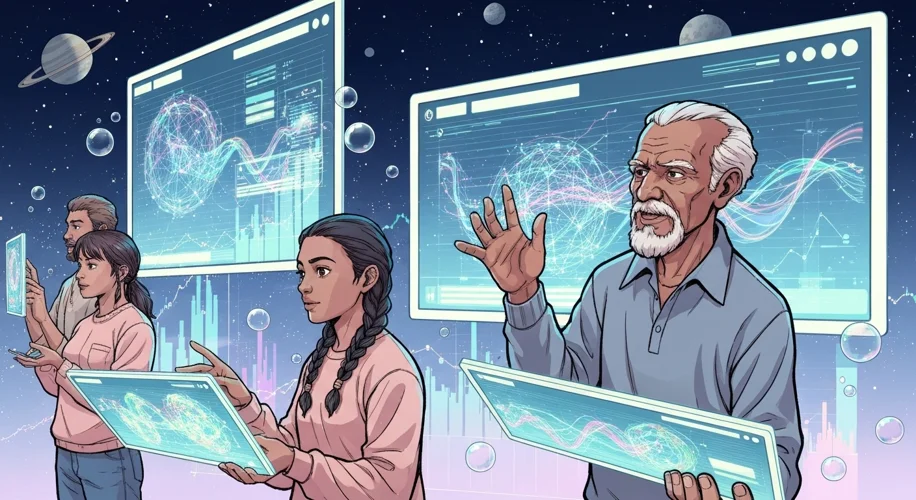The economic landscape is always shifting, and lately, technology is the primary driver. From my years in the tech industry, I’ve seen firsthand how innovation doesn’t just create new gadgets; it redraws the lines of entire industries and influences how we all make a living.
Think about it. Not too long ago, the idea of an economy built around smartphones and the apps on them would have seemed like science fiction. Now, it’s a massive sector, employing millions and generating trillions. This isn’t just about new jobs, though. It’s also about how existing jobs are changing, or sometimes, becoming obsolete.
We’re seeing this play out across the board. In manufacturing, automation and robotics are increasing efficiency, but they also mean fewer manual labor roles. In retail, online marketplaces have become dominant, transforming traditional brick-and-mortar businesses. Even creative fields are being touched, with generative AI tools now assisting artists and writers, sparking discussions about authorship and value.
These shifts bring opportunities. New industries, like those focused on renewable energy technology or advanced AI development, are emerging, offering exciting career paths. Entrepreneurs can now reach global audiences with minimal overhead, thanks to digital platforms. The ability to access and process vast amounts of data allows businesses to understand their customers and markets in unprecedented ways.
However, it’s not all smooth sailing. The speed of technological change can be daunting. Workers need to adapt, often requiring new skills and continuous learning. There’s also the challenge of ensuring that the benefits of these advancements are shared broadly and don’t exacerbate existing inequalities. How do we support those whose jobs are displaced? How do we ensure access to new technologies for everyone?
From my perspective, the key is to approach these changes with a thoughtful and informed outlook. It’s crucial to understand the potential consequences, both positive and negative. As technologies like artificial intelligence continue to mature, their economic impact will only grow. We must ask ourselves how we can harness this power responsibly, fostering innovation while building an economy that works for everyone.
The future of work, and indeed our broader economy, is being written by these technological advancements. Staying informed, embracing adaptability, and engaging in thoughtful discussion about the direction we’re headed are more important than ever.

